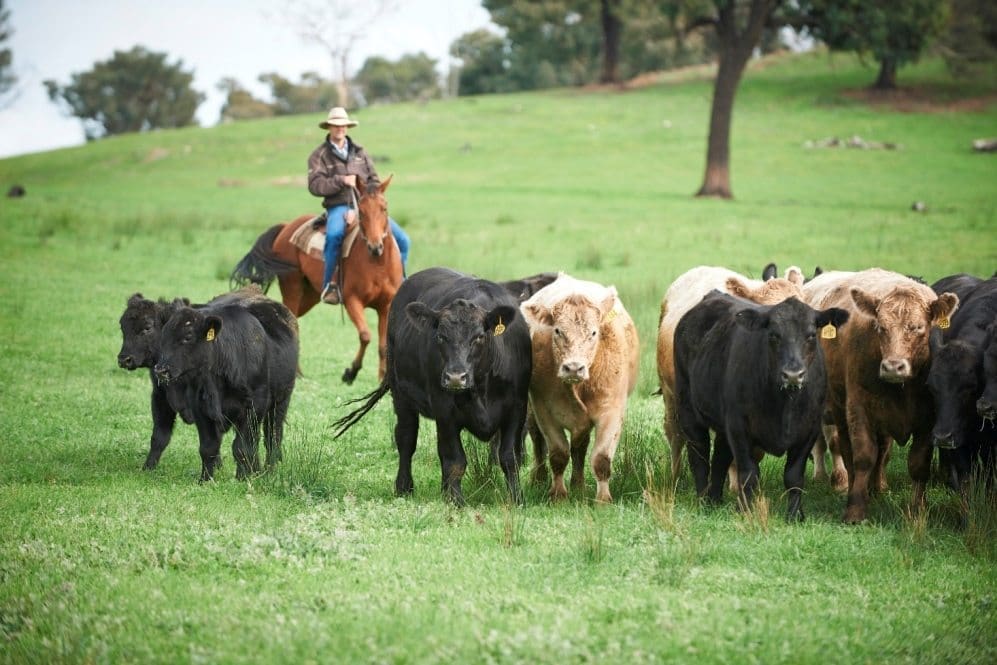
GRASSFED cattle industry peak council Cattle Australia has committed to developing a national framework to international reporting requirements for land management practices in the nation’s beef production systems.
The decision follows last month’s meeting of more than 50 industry leaders from across the supply chain in Rockhampton.
Fit-for-purpose
Cattle Australia chief executive Chris Parker said the sector recognised it needed to be part of the solution in providing a clear, evidence-based definition of deforestation and biodiversity for the Australian landscape.
“Our incredibly ancient landscapes have evolved over the past 50 million years, meaning our land, its soils, plants, animals, and ecological systems are incredibly unique,” Dr Parker said.
“It’s just not feasible to compare Australia’s land management practices for beef production with other jurisdictions, so we need to develop fit-for-purpose, regionally specific indicators for global reporting that recognise our inherent ecological differences.”

Chris Parker
Dr Parker said Australia’s more than 40,000 grassfed cattle producers, and farmers more broadly, had a strong history of innovating and developing land management practices to suit the environment in which they operate.
“While we haven’t always got it right, we have a proven history of learning and evolving our practices as science and research and development has improved,” he said.
The extensive research undertaken across Australia’s diverse bio-regions that has informed the Australian Government’s Monitoring, Evaluation, Reporting and Improvement Tool (MERIT) will be used to develop a national definition of deforestation for the Australian context, which is globally accepted for use in the supply chain and by financial institutions.
In addition, the information will be used to create a voluntary and market-driven minimum sustainability standard on environmental stewardship for use in traceability systems.
Dr Parker said with more than 6000 global companies having aligned with the Science Based Target initiative,* the importance of verified ecological credentials would continue to grow. By 2024, these companies will be required to report progress against these targets through mandatory public disclosure.
“With 70 percent of Australia’s beef exported to global markets we are committed to providing greater transparency and traceability throughout the supply chain to both customers and consumers,” he said.
“Ultimately, our vision is to create the framework to protect and enhance Australia’s unique environment and grow efficient and resilient beef businesses and thriving rural communities, while at the same time building consumer confidence and meeting international ESG reporting requirements.
“Having an agreed, globally recognised science-based framework around Australia’s land management practices that can be used to demonstrate sustainable beef production will be key for the continued growth of our industry, and we are looking forward to working with industry to progress this important work.”
Cattle Australia is expecting the framework to be developed by the end of the 2024 calendar year to meet SBTi* guidance requirements for 2025.
* The Science Based Target initiative (SBTi) is a European-driven not-for-profit organisation requiring companies to set public reporting targets for reduced emissions, zero deforestation and demonstrated improvements to biodiversity within their supply chains.



Not happy to be regulated by some overseas unelected bureaucrats. What’s happening in some overseas countries is insane and detrimental to agriculture and world food production. Keep it Australian run and have producers on the committee.
STBi is a European driven organisation. Says it all really, look at what the EU are doing to their farmers by strangling them with legislation. Set up an Australian driven organisation that has Aussie farmers in mind, just more control from the oligarchs.
Cattle Australia is barely minted and instead of a strong stand on any issue that 40,000 cattlemen care about, they have been busy tying us in chains and giving green organisations another stick to beat us with.
I am not sure there are too many people in Cattle Australia who can come up with a proper definition of “deforestation” without putting a cat-o-nine-tails in the hands of green organisations.
If this protocol is to be truly science based, there must be recognition that ecosystem restoration is just as likely to involve clearing trees as growing them and every clearance of a woody weed is not “deforestation”. Much of Australia was naturally, open forest, not the overgrown mess that most of our national parks have become.
However, the green groups will never allow that as they have other agendas.
One only has to look at the defamatory welter that green groups made of the new Queensland SLATS methodology to know where we are headed with this.
I do not believe that Cattle Australia has the knowledge, strength, or power to ensure that this process is done correctly and without the interference of green groups. Any attempt to work with those groups is headed for a huge fail.
Couldn’t agree more Joanne!
As a grass feed beef producer I would be, in a very open minded manner, interested to know of the sorts of opinions/ arguments/overviews that were expressed at the meeting of the 50 + industry leaders in Rockhampton. This would help me gauge the commitment this plan has to reporting a plan for this industry rather than reacting to a ” European-driven not-for-profit organisation requiring ” Australian producers to jump through their hoops.
The misunderstood practice of “ecosystem restoration” AKA “regowth control” but labelled “deforestration” makes one wonder how many European beef operations should be shamed for not implementing a vigorous program of forest replanting, to restore the natural state. It is hard to imagine an improvement in biodiversity for long cleared land if the woody component is not restored.
As a grass feed beef producer I would be, in a very open minded manner, interested to know of the sorts of opinions/ arguments/overviews that were expressed at the meeting of the 50 + industry leaders in Rockhampton. This would help me gauge the commitment this plan has to reporting a plan for this industry rather than reacting to a ” European-driven not-for-profit organisation requiring ” Australian producers to jump through the hoops they understand as normal.
In all this misunderstood practice of “ecosystem restoration” AKA “regowth control” but labelled “deforestration” I wonder how many European beef operations should be shamed for not implementing a vigorous program of forest replanting, to restore the natural state. It is hard to imagine an improvement in biodiversity for long cleared land if the woody component is not restored.
Not certain if being dictated to by the “requirements” of a European, unelected, unaccountable environmental NGO is a smart move for our industry.